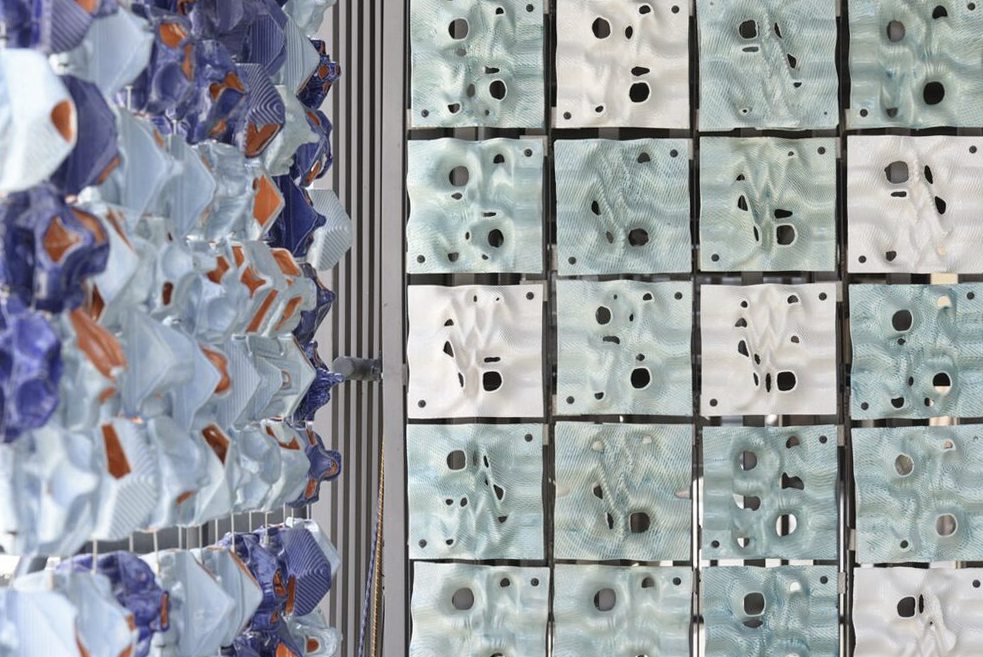ID Emphasis
Expanding Boundaries Across the Built Environment
The ID emphasis gives MArch students the opportunity to expand their knowledge of Interior Design. The Interior Design program at Woodbury School of Architecture explores new design frontiers and expands professional possibilities. Interior architects craft spaces and design atmosphere for a breathtaking range of environments: beautiful private spaces defined by physical boundaries, public spaces bounded by landscapes and exterior vistas, spaces for community engagement and exhibition installations, and virtual spaces, real or imagined.
Student Research & Funding
Our Master of Interior Design (MID) program is growing, thanks to a $2.4 million grant from the Department of Education (DOE) to fund our proposal, Supporting Success in Interior Architecture (SSIA). The grant supports cutting edge design education for our Interior Architecture grad students. It allows the university to develop facilities, acquire equipment, provide academic and support services, and deliver state-of-the-art distance education to our San Diego campus.
Woodbury’s Master of Interior Design program engages its grad students in theoretical and practical learning experiences that prepare them for success in the profession and for continued studies at the doctoral level. The grant provides opportunities for teaching assistant positions, as well as funding for grad student research and publication.
Teaching Assistant Positions
Each semester, multiple teaching assistant positions are available for MArch and MSArch students who choose the ID Emphasis. These paid positions provide additional support for students to pay for their degree.
Publication Opportunities
With the PPOHA-MID grant, the university provides funding and supports opportunities for grad student research and publication. Students are encouraged to meet with faculty to draft research and paper proposals for publication.

Courses
INAR 6702
FIGURING SPACE 3: IMPACT AND IMPLICATION, 3 studio units.
This course presents an environment-behavior approach to interior architecture, and places the values, needs and preferences of users at the forefront of the design process, founded on the belief that good design is ultimately judged by how conducive it is to human existence. Students learn an integrated approach to managing environmental performance, human comfort and life safety. One section is offered in the fall term. You can watch last year’s final project here: MAPPING PEOPLE: An Ethnographic Case Study of IKEA Shoppers. The movie won 1st prize in the IDEC video competition.
INAR 6706
EMERGING IDEAS 4: METHODOLOGICAL SLANT, 3 seminar units.
The fourth emerging Ideas seminar provides a three-unit seminar focusing on methodological approaches to research. It is in this seminar that students transform the overall research interests of the cohort into individual methods of creating knowledge. Methodologies explored include those used with various disciplinary emphases in architecture and design, ranging from professional to academic, normative to exploratory, all with a strong critical lens. This seminar provides grounding for the students’ research interests in their study away fieldwork studio the following summer. One section is offered in the spring term.
INAR 6701
CRITICISM 3: REWRITING THE CANON, 3 seminar units.
This course will explore ideas about built form, human experience, and social constructions, as well as other issues that influence design principles, practical needs and integration of the practical and the theoretical. By the end of the semester students will not only analyze and read current design and architectural theories but they will also synthesize these assigned and self-discovered readings into a theoretical framework that works with their own design ideas. This course situates a diversity of critical and generative approaches to late twentieth century design while introducing current themes in contemporary design practice, and is structured around the exploration of contemporary theories as they have developed over the past 50 years. One section is offered in the fall term.
INAR 6722
PRACTICE 3: COLLABORATION, 3 studio units.
The third course of the Practice courses asks students to merge the research developed in the Emerging Ideas seminars with real-world experience. Students research and select the work of a professional and engage in a mentoring relationship. This relationship provides the opportunity for students to take their thesis research and “test” it with a professional or scholar who has been working on similar research. One section is offered in the spring term.